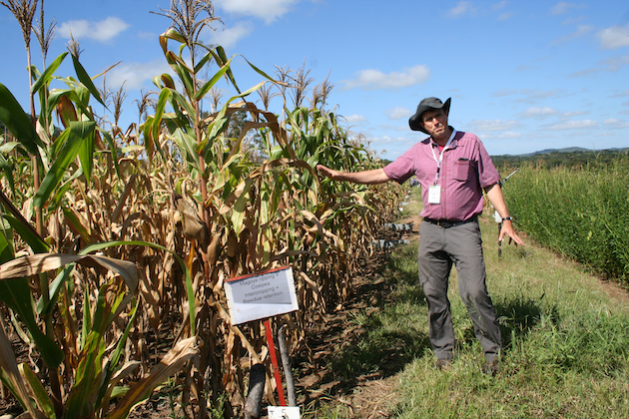BULAWAYO, Dec 05 (IPS) – On the dusty plains of Shamva District in Zimbabwe, Wilfred Mudavanhu’s maize field defies drought.
With the El Niño-induced drought gripping several countries in Southern Africa, Mudavanhu’s maize crop is flourishing, thanks to an innovative farming method that helps keep moisture in the soil and promotes soil health.
Once harvesting just 1.5 tonnes of maize (30-50 kg bags) each season, Mudavanhu’s harvest jumped to 2.5 tonnes of maize (50 bags) in the 2023/2024 cropping season.
Mudavanhu is one of many farmers in Zimbabwe embracing conservation agriculture, a method that prioritizes minimal soil disturbance, crop rotation, and soil moisture conservation. The practice is complemented by other methods such as timely control of weeds, mulching, and farming on a small plot to gain high yields.
Researchers say the conservation agriculture method is proving a lifeline for farmers grappling with climate change.
For more than 20 years, the International Maize and Wheat Improvement Center (CIMMYT) has promoted research on conservation agriculture in Southern Africa with the aim of getting farmers to increase their crop yields.
Under conventional farming, smallholder maize yields have often been below 1 tonne per hectare in Zimbabwe, according to researchers. Adopting CA practices has led to yield increases of up to 90 percent. While in Malawi farmers have experienced maize yields increased by up to 400 percent, crops are integrated with nitrogen-fixing trees such as Faidherbia albida. In Zambia, maize yields under conventional farming have been at 1.9 tonnes per hectare, and these have increased to 4.7 tonnes per hectare where farmers have used conservation agriculture practices.
But beyond high yields, conservation agriculture saves moisture and enhances soil health, offering farmers a long-term solution to the growing problem of soil degradation, a looming threat in the face of climate change, researchers said.
“As the climate crisis deepens, CA has become essential for Southern African farmers, offering a resilient, climate-smart approach to boost productivity and withstand climate change impacts, reinforcing sustainable food security,” Christian Thierfelder, a principal scientist at CIMMYT, told IPS, explaining that CA could be a game changer for the rainfed cropping system in the region.




